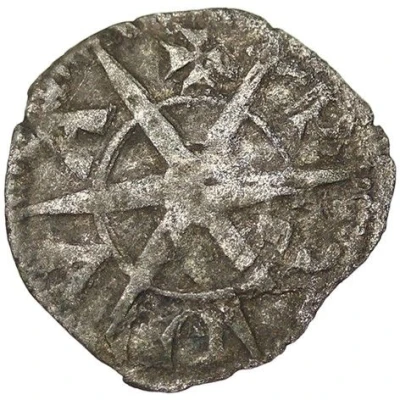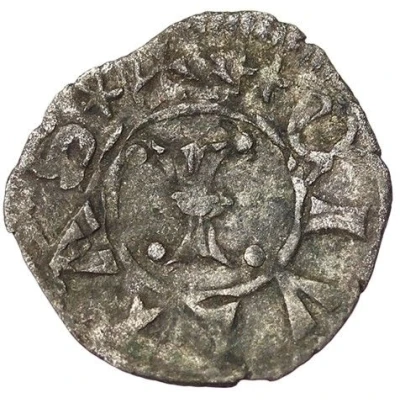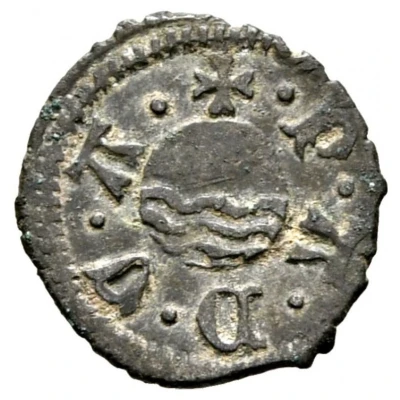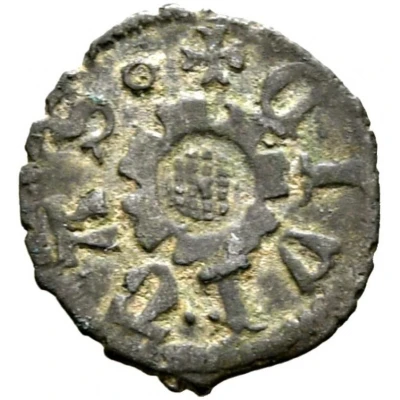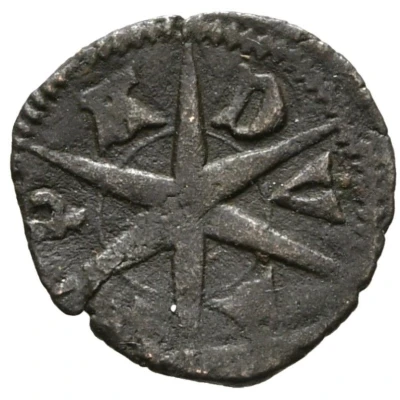
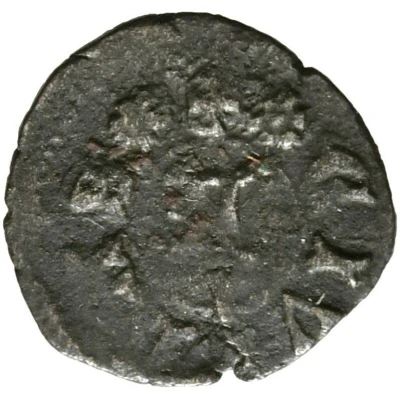

Denaro Piccolo - Francis I of Carrara ND
| Billon | 0.35 g | 12 mm |
| Issuer | Lordship of Padova (Italian States) |
|---|---|
| Lord | Francis I the Old (1350-1388) |
| Type | Standard circulation coin |
| Years | 1355-1388 |
| Value | 1 Denier |
| Currency | Denier |
| Composition | Billon |
| Weight | 0.35 g |
| Diameter | 12 mm |
| Shape | Round (irregular) |
| Technique | Hammered |
| Orientation | Medal alignment ↑↑ |
| Demonetized | Yes |
| Updated | 2024-10-05 |
| Numista | N#163449 |
|---|---|
| Rarity index | 94% |
Reverse
Large gothic "F" within inner linear circle.
Script: Latin (uncial)
Lettering:
✠ CIVITAS
F
Lettering (regular font):
✠ CIVITAS
F
Translation:
City
Francis
Edge
Plain
Comment
Scyphate coin. Scyphate is a term frequently used in numismatics to refer to the concave or "cup-shaped" Byzantine coins of the 11th–14th centuries.
This usage emerged in the 19th century, when the term scyphatus, attested in south Italian documents of the 11th and 12th centuries, was erroneously interpreted as deriving from the Greek word skyphos (σκύφος, "cup"). In reality, the term probably derives from the Arabic word shafah, "edge, rim", and refers to the distinctive and conspicuous border of the early histamena gold coins. Due to this misunderstanding, the term "scyphate" has been widely applied to the concave gold, silver, and copper coins of the late Byzantine Empire and the foreign issues imitating it. These coins are more properly designated as trachea (singular: trachy, from Greek τραχύ, "rough, uneven").
It is distinguished from the "Denaro Piccolo" of "Francesco I Da Carrara" by being a scyphate coin.
CIVITAS (a term which, in the Latin political and juridical conception, designated the city-state, corresponding to the Polis of the Greeks; it also indicated the ensemble of citizens, distinguishing itself in this from urbs, which instead indicated the city as a complex of buildings and walls.)
Interesting fact
One interesting fact about the Denaro Piccolo - Francis I of Carrara ND (1355-1388) coin is that it was minted during a time of great economic and political change in the Italian States. The Lordship of Padova, where the coin was minted, was a significant commercial center in the region, and the coin was likely used for everyday transactions. Despite its small size and relatively low value, the coin is a valuable piece of history that provides insight into the economic and political climate of the time.
